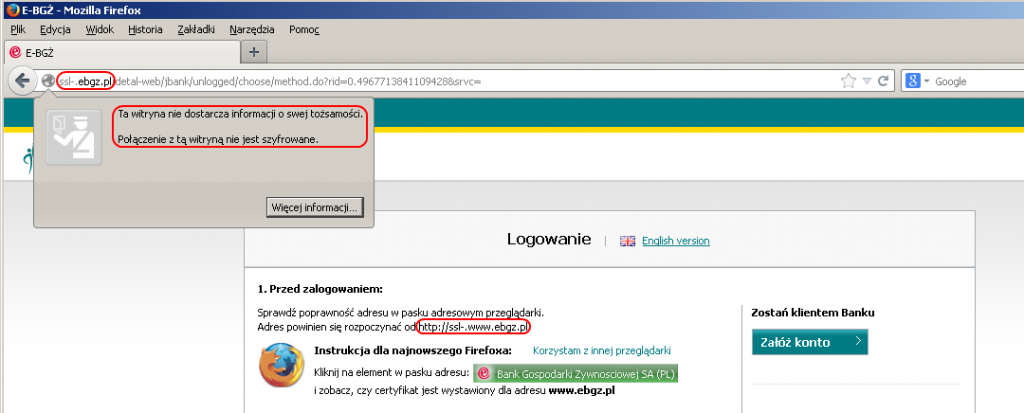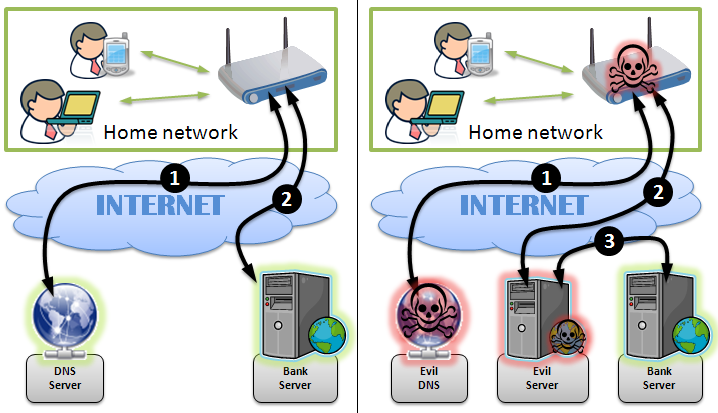Attackers changed the DNS configuration of vulnerable home routers to conduct man-in-the-middle attacks on a large scale against Polish online banking users.
“The attack is possible due to several vulnerabilities in home routers that make DNS configuration susceptible to unauthorized remote modifications,”“In the resulting man-in-the-middle attack content of several e-banking websiteswas altered to include JavaScript injects that tricked users into giving up their usernames, passwords and TANs [transaction authentication numbers]. Effectively, money is stolen from users’ bank accounts.” reported the Polish CERT in a blog post.
The hackers used a DNS redirection to hijack users of five Polish banks to a server that acted as a proxy and allowed attackers to perform man-in-the-middle and manipulate the traffic between users and online banking websites.
To by-pass HTTPS hackers adopted the SSL stripping, the attackers prevented the SSL connection from being established between victims and bank services, but kept the connection between the user and malicious proxy unencrypted.
Note that during the attack the browser indicator used to inform users that they are using a secure SSL connection is missed, so attacker to deceive victims rewrote the URLs in their browser’s address bar adding “ssl-.” prefix before the domain name.
According Polish IT security outfit Niebezpiecznik.pl, the attackers probably exploited a flaw in the router firmware ZyNOS router firmware created by ZyXEL Communications and used in many router models from other manufacturers includingTP-Link, ZTE, D-Link and AirLive.
The attackers exploited the vulnerability in home routers to download a configuration file without authentication, the file allows the extraction of the password for the administrative interface of the device.
Recently security experts have found numerous flaws that allow attackers to modify home routers setting, the alert provided by the CERT Polska is related to a first case of an attack on a large scale.
“There are many ways to modify DNS entries in home routers, some of them known for years,” “It is actually surprising that it’s the first time we see it exploited for profit on a mass scale.” said Przemyslaw Jaroszewski, the head of incident response at CERT Polska.
Jaroszewski believes that DNS attacks like the one described will be used against online banking users in other countries in the future.
Follow a few suggestions to protect you from DNS hacking on your home router:
“In order to protect a home routers from the attack, any type of remote administration access from the Internet should be disabled,” “Default usernames and passwords should be changed to unique ones, not revealed publicly.” the Polish CERT reported.


No comments:
Post a Comment